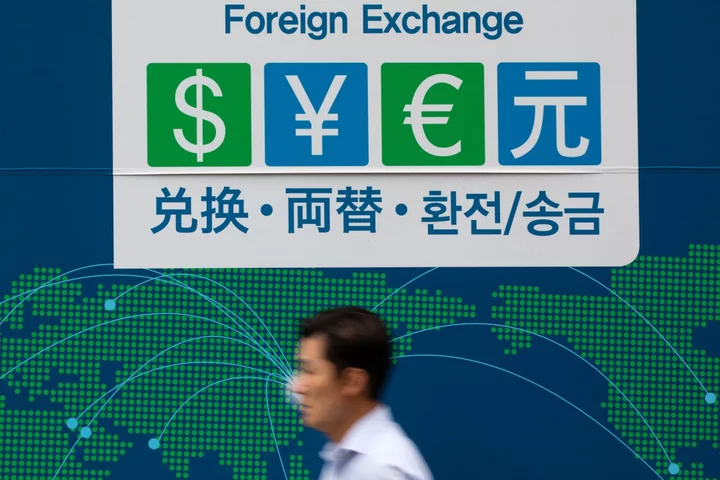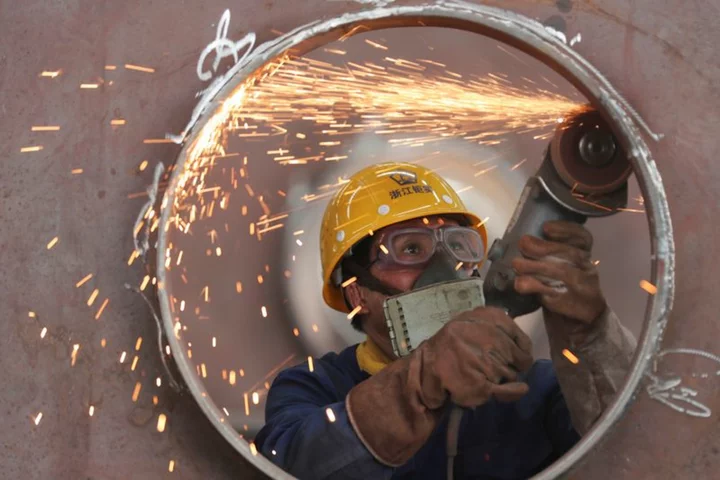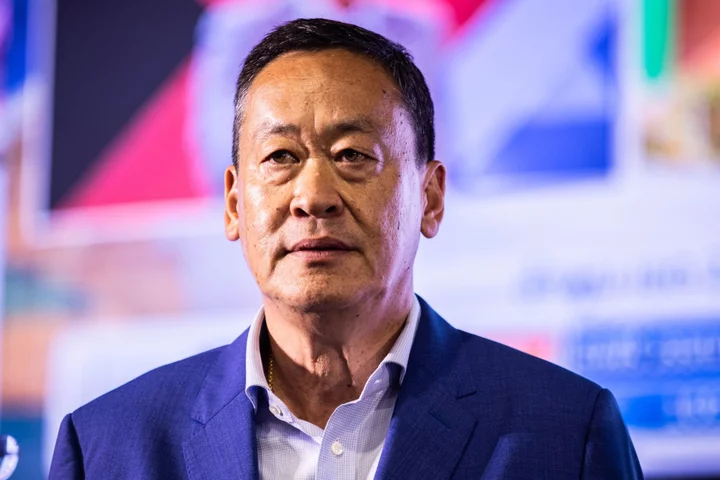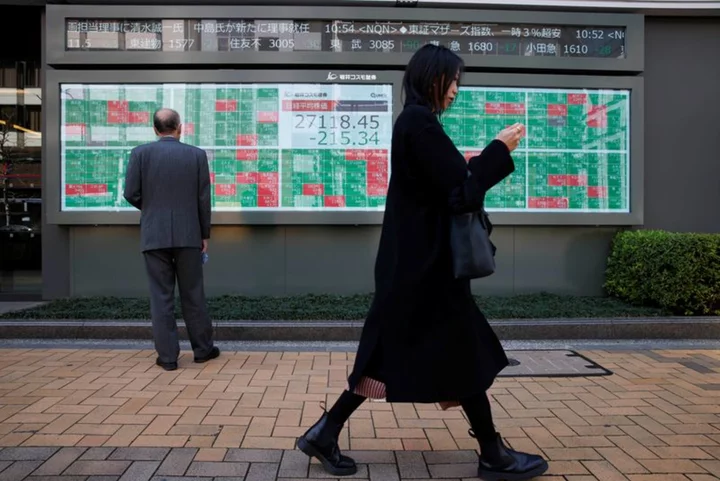By Iain Withers and Kirstin Ridley
LONDON Big banks in Britain are preparing for any future escalation of Western sanctions on China and have shared their "scenario planning" with the British and U.S. governments, a senior banking official has told Reuters.
The project involves sharing lessons learned from other sanctions frameworks, including those on Russia, and discussions about the effect any measures imposed on China might have, Neil Whiley, director of sanctions at lobby group UK Finance, said.
After many companies were wrongfooted by the speed and breadth of prohibitions on Russia, banks are drawing up contingency plans in case geopolitical tensions between the West and China escalate, seven finance industry sources said. They did not expect any imminent changes to sanctions.
The work by UK Finance - which represents around 300 firms, including HSBC, Barclays and JPMorgan - examines the transparency of asset ownership and control and how easily Chinese products can be traced, Whiley said.
It also focuses on the extent of commercial ties between the West and China across industries, including supply chains in high-risk sectors like technology, and attempts to highlight measures that might backfire if applied to China.
The work has been carried out against a backdrop of tensions between the West and China over the status of Taiwan, which Beijing claims, growing export controls, accusations of Chinese spying and a security crackdown by Beijing on companies.
UK Finance convened fortnightly meetings of big British and overseas banks over several months, Whiley said, before drawing up a draft document that runs to tens of thousands of words. Reuters was not able to review the document.
The draft was completed in August and shared with Western government contacts in recent weeks, he said.
The U.S. Treasury Department, which runs the Office of Financial Sanctions Implementation, Britain's Foreign Office and Barclays did not respond to requests for comment. JPMorgan declined to comment.
Three senior London-based bankers, who declined to be named because they were not authorised to speak publicly, said their boards had discussed the possibility of stronger Western sanctions on China in future.
Scenarios from major cyber-attacks through to a military intervention in Taiwan could potentially trigger further prohibitions on China, one lawyer who advises banks said.
"The biggest financial institutions are ... determining whether the exposure they have (to China) is tolerable given a pessimistic direction of travel for geopolitics," said one security expert, who declined to be named.
TRACING RISKS
The preparations have been driven in part by the unprecedented sanctions slapped on Russia following its full-scale invasion of Ukraine, which left some companies struggling to get assets out of the country or exit positions.
One of the bankers said sanctions on Russia had "removed naivety" among businesses and prompted the industry to think more deeply about China risks.
Communications between officials from the United States and China have increased in recent months, thawing frosty relations somewhat ahead of a meeting between Chinese President Xi Jinping and U.S. President Joe Biden next month.
China, the world's second-largest economy, remains central to Western supply chains. The European Union's trade deficit with China, for example, widened to $276.6 billion in 2022 from $208.4 billion a year earlier, Chinese customs data show.
British finance also has close ties with China. Two of the country's biggest banks - HSBC and Standard Chartered - make most of their profits in Asia, forcing them to straddle the geopolitical faultlines.
HSBC and Standard Chartered declined to comment.
SURGE IN CALLS
Whiley said the UK Finance project was designed to be part of industry-wide "horizon-scanning" to assess potential risks across multiple countries, in line with regulatory guidance, and did not reflect expectations or requests for more sanctions.
Nonetheless, financial firms are alive to the risks.
Another banker, who works for a lender with a presence in Asia, said the bank's board was planning for more strains between China and Taiwan and likely consequences for financial markets, including currency and equity reactions.
Lloyd's of London underwriters are among insurers that have raised rates and cut cover for risks involving Taiwan as concerns grow about possible military action by China, Reuters exclusively reported in August.
Against that background, four lawyers in London reported a surge in calls from financial clients seeking guidance on China, from sanctions compliance and risk assessment through to how to deal with any investigations or enforcement.
Demand for advice was so keen that one lawyer, who declined to be identified, said his firm last month held its first client-only seminar on Russia, China and how geopolitics were shaping sanctions and compliance.
"Companies will ... want to make sure that for long-term engagements with Chinese entities, they have robust sanctions provisions in their contracts and agreements," said Leigh Hansson, a London and Washington-based lawyer at Reed Smith.
Banks' concerns are being driven partly by the robust U.S.-steered approach to the semi-conductor and technology industry and foreign policy discussions, lawyers said.
The Biden administration has curbed chip exports to China to deny Beijing access to advanced technology that could further military advancements or human rights abuses. China hit back with accusations of economic coercion.
One lawyer said he did not expect any repeat of the Russia response and for "commercial reality" to enter foreign policy decision-making in relation to China.
"(Any sanctions) will be very much targeted at specific companies, specific products and services," the lawyer said.
(Additional reporting by Sinead Cruise, Stefania Spezzati and Lawrence White in London and Michelle Price in Washington; Editing by Catherine Evans)









